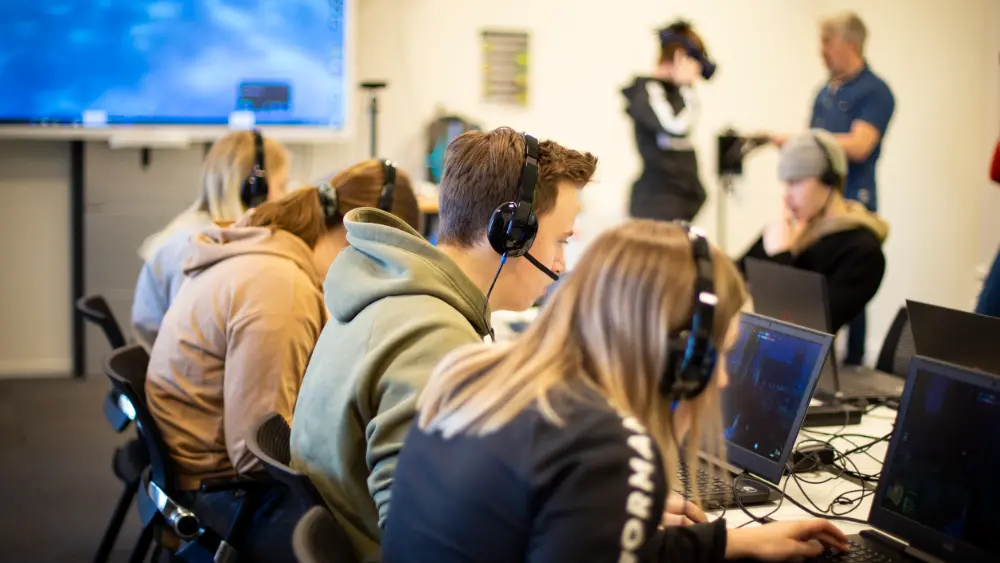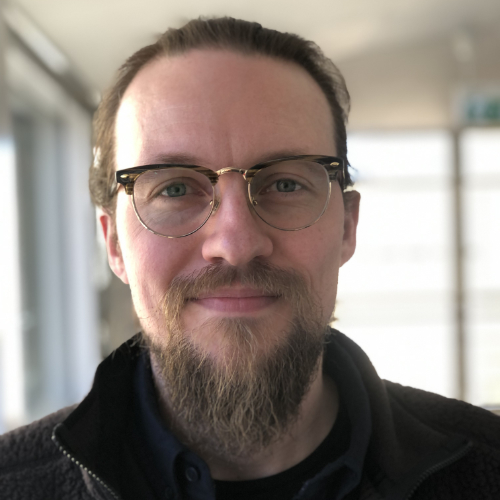Digitalisation, technologies, media and learning
The digitalisation of society brings with it both opportunities and challenges nationally, regionally and individually. The research programme Digitalisation, Technology, Media and Learning (DTML) studies and develops the terms on which various stakeholders use digital technologies.
Digitisation changes the terms and conditions for work, learning and leisure. Digital technologies generally offer the user so-called affordances, or possibilities of action. As these need to be discovered and tested, the DTML programme places great emphasis on investigative and experimental research – design-based research, for example – in order to study how the conditions for learning can be created in various formal and informal contexts. One priority of this work is to study how digital technology can be used to support teaching and learning that addresses societal problems such as climate change.
The DTML programme is a collaboration with regional stakeholders, often focused on their present-day or potential future use of digital technologies and how this can take place in an innovative, efficient and sustainable manner in the context in question. Explorative studies are conducted in various occupational contexts and in collaboration between different subjects, such as social work, caring sciences, media and communication studies, business studies, computer science and didactics. This creates the conditions for interdisciplinary research collaborations and results with relevance regionally, nationally and internationally. The DTML programme is linked to the research group ICT in Learning.
Can virtual reality be used as a teaching aid in schools?
Jörgen Holmberg and Göran Fransson discuss possible applications for virtual reality (VR) in the classroom and how practice-based research may prove to be an accessible route to studying the opportunities and challenges of doing so. They present examples of the experiences of teachers, researchers and student teachers from various research and collaboration projects. Sadly, Göran Fransson passed away shortly after the recording. The movie is in Swedish.
Current research
Doctoral projects
- Sara Mörtsell (PhD candidate, GRADE). Studying the use of digital technologies in upper secondary school.
- Amelie Nebes (PhD candidate, UPGRADE). Studying the use of digital systems in quality work in preschools.
Experimental activities in collaboration with diverse stakeholders
In the interests of increasing our ability to conduct interdisciplinary research and collaborations with external partners, it is important that we perform experiments and hold workshops and other activities related to cutting-edge digital technologies (such as VR, AR, AI) together with diverse national and regional stakeholders. This will create opportunities and increase understanding with regard to:
- the opportunities and challenges for companies, organisations and individuals associated with the use of new technologies;
- the specific affordances created when technologies are used in different ways and for different purposes by different stakeholders;
- identifying important areas for study, development and evaluation on behalf of external stakeholders; and
- identifying key research questions and potential research collaborations in relation to the above.
Digital Learning Lab

The principal arena for the experimental activities of the DTML programme is the Digital Learning Lab (DLL) at the University of Gävle. DLL has a number of concept rooms that facilitate innovative lesson design and game-based learning using using physical and digital solutions, in order to create new possibilities for teaching, study and other forms of human meaning-making; for example, innovative learning environments in which students can interact with both human and virtual actors, participating in the classroom and/or online, and in real time of asynchronously. The DTML research group leads the investigative and explorative work at DLL in collaboration with both internal and external regional stakeholders in the fields of education, healthcare and social work. Digital Learning Lab also functions as an experimental environment for national graduate schools and research programmes.
National and international collaboration
As the primary focus of the DTML is design-based research in collaboration with practitioners in various fields, the programme collaborates with a number of stakeholders in schools, healthcare, social work and the business community.
DTML conducts research in collaboration with an innovation network of researchers from all Scandinavian countries.
The programme also collaborates with the Education and Learning Sciences (ELS) group at Wageningen University in the Netherlands and with research groups at Aarhus University in Denmark and Shahid Beheshti University in Iran.
Facts about the DTML research programme
About Digitalisation, Technology, Media and Learning
Purpose
The program aims to investigate, and also develop, the conditions and prerequisites for various actors' use of digital technologies in teaching and learning. This is often achieved through what is known as design-based research, where researchers and actors in the specific research context contribute their respective expertise. In this way, conditions are created to generate direct practical utility in the given context and theoretical knowledge with relevance in other contexts.
Target group
The program's intended target group is private and public societal actors who, in some way, wish to enhance their understanding and ability to create conditions for learning using digital technologies. This collaboration can take place through educational, development, and research projects.
Participants
Ola J Lindberg, professor of education, guest professor
Pia Tham, professor of social work
Aihie Osarenkhoe, professor of business administration
Eleonor Kristoffersson, professor of law
Daniella Fjellström, docent företagsekonomi
Komal Singh Rambaree, associate professor of business administration
Peter Mozelius, associate professor of computer and systems Science, guest researcher
Jörgen Holmberg, senior lecturer in curriculum studies (deputy program coordinator)
Niklas Humble, senior lecturer in computer science (program coordinator)
Davoud Masoumi, senior lecturer in curriculum studies
Maryam Bourbour, senior lecturer in education
Per Vesterlund, senior lecturer in media and communication sciences
Åsa Vidman, senior lecturer of social work
Johan Liljestrand, senior lecturer in education
Johan Christensson, senior lecturer in Swedish language
Sara Mörtsell, PhD student in education
Kristina Walldén-Hillström, lecturer
Claes Westelius, lecturer
Jan Sjölund, lecturer
Nessica Nässén, lecturer
Programme Officers

Please contact Niklas Humble if you have any questions about the research programme or read more about her research and see her publications in the research presentation.

Please contact Jörgen Holmberg if you have any questions about the research programme or read more about her research and see her publications in the research presentation.
Graduate schools
The DTML programme collaborates with GRADEresearch, a network that arranges three national graduate schools:
- The Graduate School for Digital Technologies in Education (GRADE)
- Teacher Education and the Digitalization of the School System (UPGRADE)
- The Graduate School for Learning, Interaction and Knowledge in a Digitised World (LIKED)
More information about GRADEresearch and the three graduate schools External link.
External link.
This page was last updated 2024-05-13
